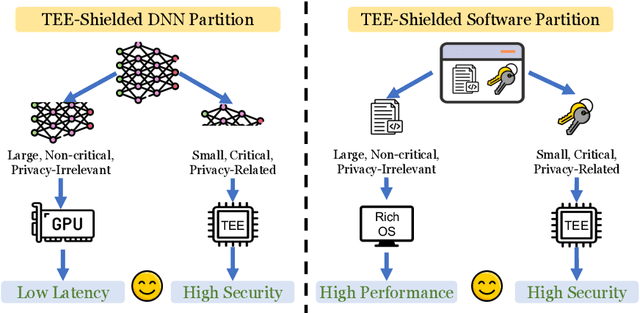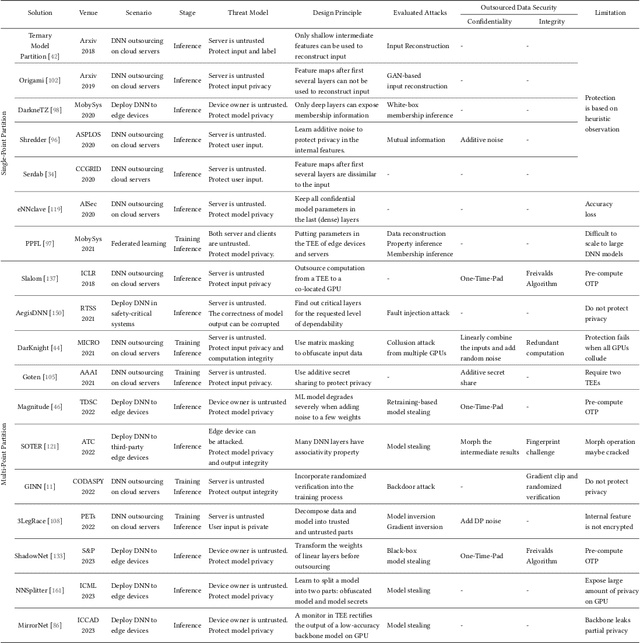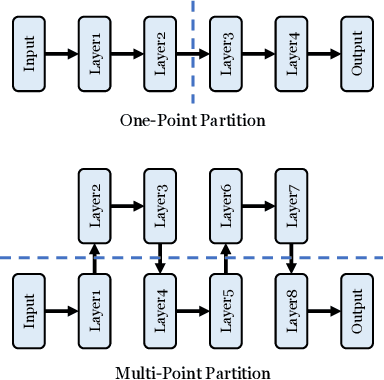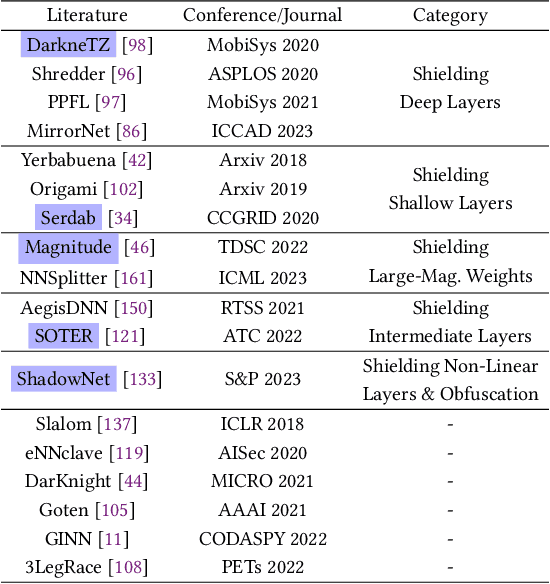TEESlice: Protecting Sensitive Neural Network Models in Trusted Execution Environments When Attackers have Pre-Trained Models
Paper and Code
Nov 15, 2024



Trusted Execution Environments (TEE) are used to safeguard on-device models. However, directly employing TEEs to secure the entire DNN model is challenging due to the limited computational speed. Utilizing GPU can accelerate DNN's computation speed but commercial widely-available GPUs usually lack security protection. To this end, scholars introduce TSDP, a method that protects privacy-sensitive weights within TEEs and offloads insensitive weights to GPUs. Nevertheless, current methods do not consider the presence of a knowledgeable adversary who can access abundant publicly available pre-trained models and datasets. This paper investigates the security of existing methods against such a knowledgeable adversary and reveals their inability to fulfill their security promises. Consequently, we introduce a novel partition before training strategy, which effectively separates privacy-sensitive weights from other components of the model. Our evaluation demonstrates that our approach can offer full model protection with a computational cost reduced by a factor of 10. In addition to traditional CNN models, we also demonstrate the scalability to large language models. Our approach can compress the private functionalities of the large language model to lightweight slices and achieve the same level of protection as the shielding-whole-model baseline.
 Add to Chrome
Add to Chrome Add to Firefox
Add to Firefox Add to Edge
Add to Edge